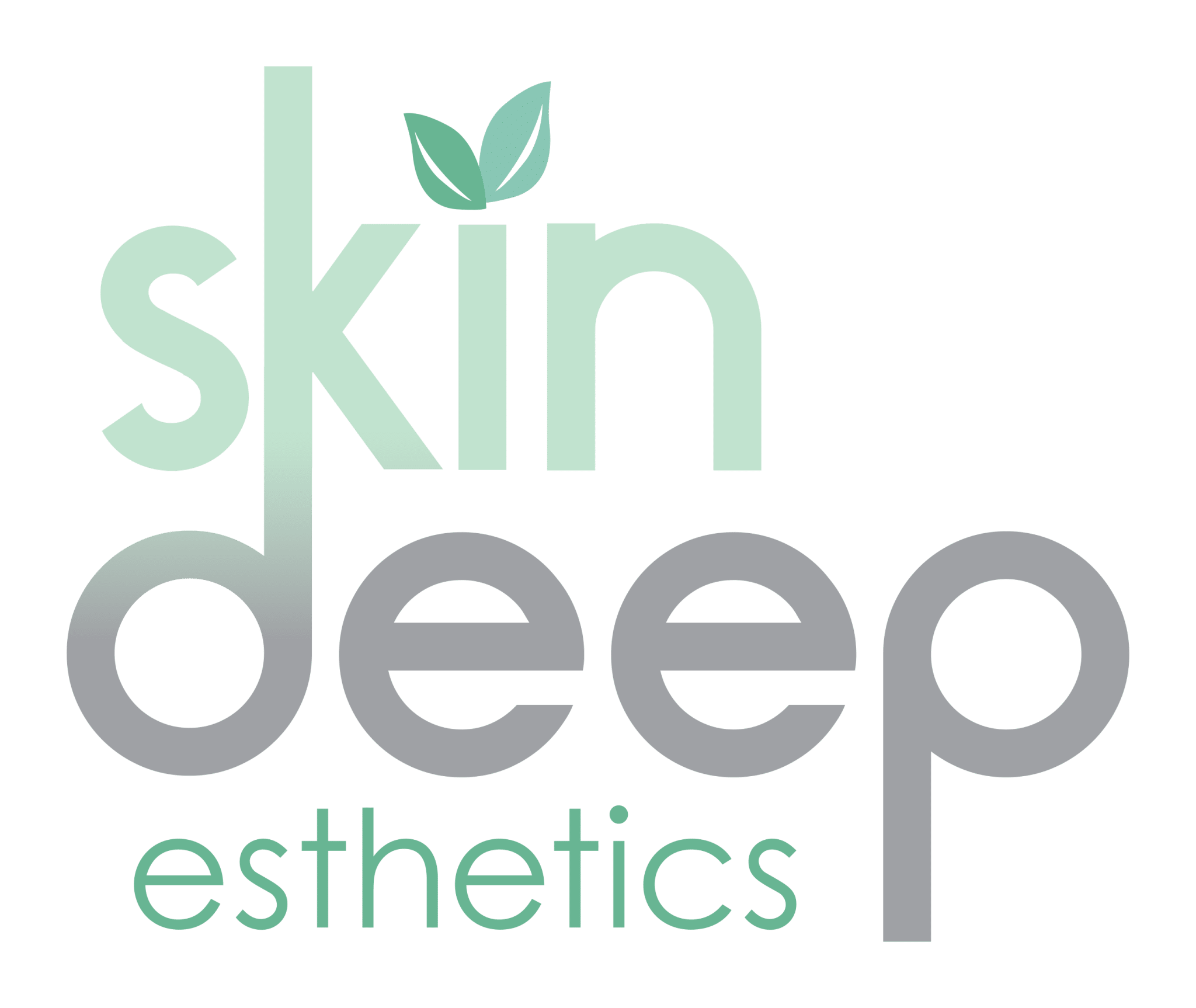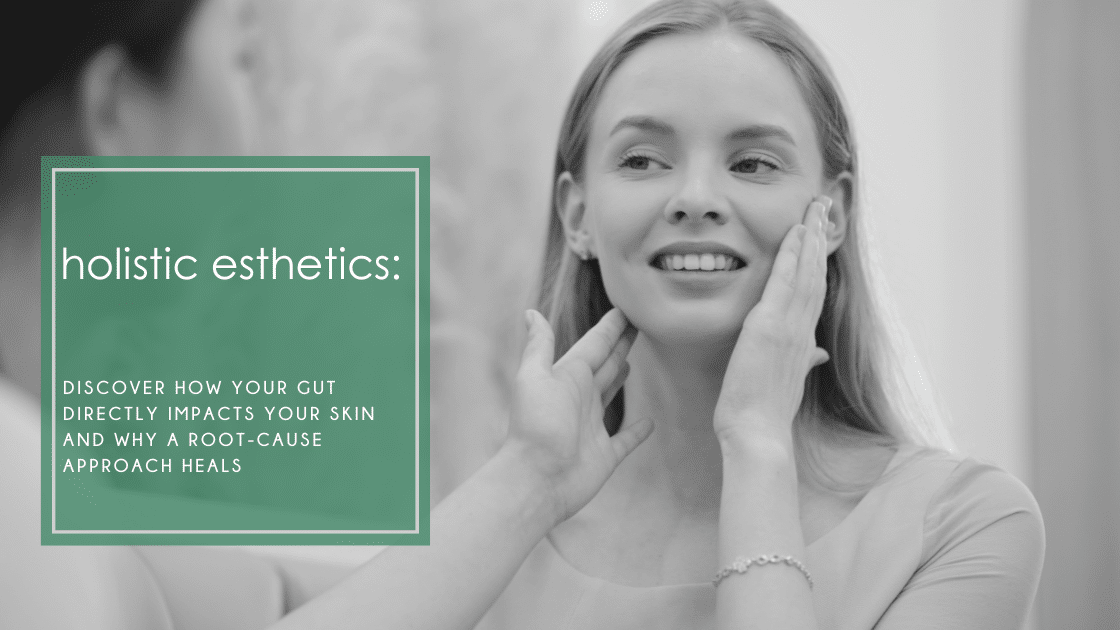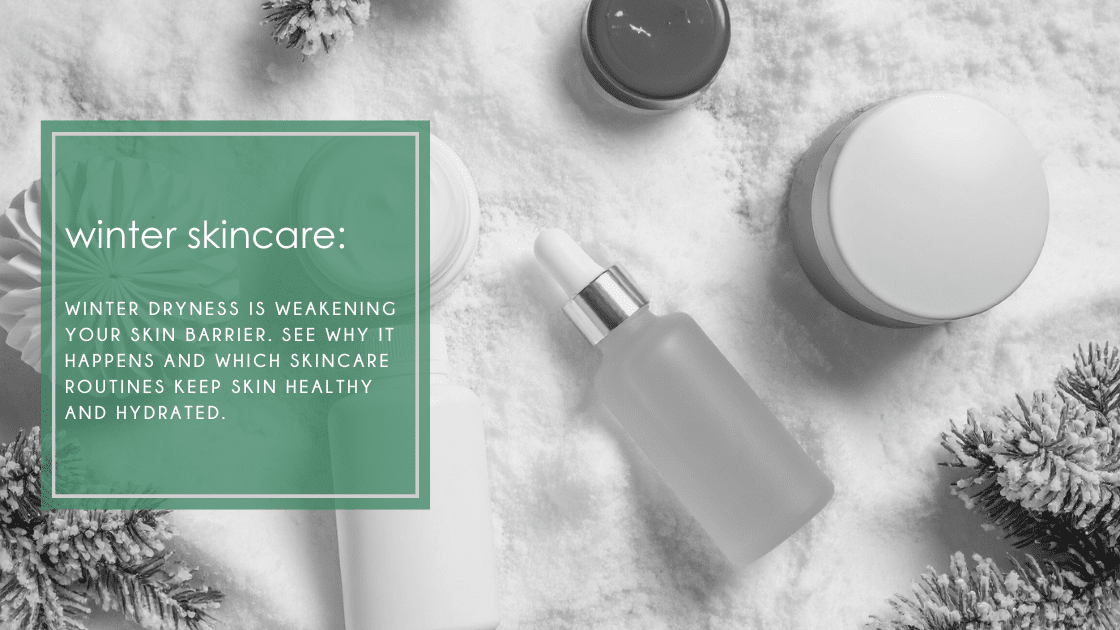Holistic Esthetics: More Than a Buzzword
What Holistic Esthetics Really Means
The term Holistic Esthetics is misused in the esthetics field – today, we will explain what it really means. Holistic esthetics recognizes that our skin and gut are deeply connected. Today, we are breaking down the basics of the gut-skin relationship, how estheticians can help support you, what you need to know about the gut microbiome. Lastly, busting the myths behind the “clean beauty” trend. Let’s dive in!
What is Holistic Esthetics?
The term holistic esthetician is tossed around the beauty industry, but is barely understood. Holistic esthetics focuses on overall wellness – not just what shows up on the skin, but the person as a whole. Too often, traditional estheticians, dermatologists, and doctors treat patients and clients similarly. At Skin Deep Esthetics, we understand no two people are alike. Every facial is tailored to your unique skin needs, gut health, and lifestyle.
What is a Holistic Esthetician?
A holistic esthetician thinks outside the box and connects the dots as a whole-body approach between the gut-skin connection. Your skin, the largest organ, is a mirror of your internal health. Because it’s a detox organ, inflammation, toxins, and an imbalanced gut microbiome show up as inflammatory skin conditions. Our role is to guide you in identifying the root cause of your skin conditions, educate you about the process of detoxification, and help you heal your skin from the inside out.
Gut Health and Skin
Your skin is the largest organ and one of the primary detox pathways. It’s tightly connected to your gut microbiome. According to PubMed, “The microbiome is a key regulator for the immune system, as it aims to maintain homeostasis by communicating with tissues and organs in a bidirectional manner. Hence, dysbiosis in the skin and/or gut microbiome is associated with an altered immune response, promoting the development of skin diseases, such as atopic dermatitis, psoriasis, acne vulgaris, dandruff, and even skin cancer.”
Both the gut and skin have their own immune systems that filter out both good and bad bacteria, as well as their own microbiomes. Your skin’s microbiome protects the skin barrier, which we covered in last week’s blog. Birth, hormonal changes, diet, and even gender impact how your skin’s microbiome shifts over time. According to PubMed, “The skin microbiome and the skin barrier relate symbiotically to affect each other in physical, chemical, and immunological ways. The microbiome also interacts directly with pathogenic microorganisms encountered on the skin surface.” Similarly, your gut has its own protective barrier, which is impacted by the American diet. PubMed says, “Intestinal barrier integrity plays a crucial role in protecting microbiota from entering the systemic circulation and in avoiding inflammation in the gut. Diet can have a vital role in the maintenance of particular skin pathologies, when those food ingredients impair the intestinal barrier, which leads to gut bacteria entering the bloodstream.”
In short
Your gut and skin speak to each other. When one is inflamed, the other often follows. PubMed talks about the gut-skin connection, “The intestinal and epidermal barriers are connected through the systemic circulation (blood and lymph) in a simplistic manner. The dysbiotic state is characterized by an impaired gut barrier (imbalance in gut microbiome, reduced mucus layer, reduced IgA secretion, barrier disruption, intestinal permeation into the bloodstream, and gut inflammation) and an impaired skin barrier (imbalance in skin microbiome, reduced human and microbial antimicrobial peptides (AMP) production, skin rashes/thickening/lesions, and skin inflammation). Gut and skin dysbiosis are connected through an immune imbalance (Th2 skewing in this example), whereas crosstalk can be bidirectional.”
Acne 20 Years Ago vs. Acne Today
When I became an esthetician 22 years ago, acne primarily affected teenagers and cleared up by their mid-20s. Today, adult acne is more prominent – especially in adults in their 30s, 40s, and 50s. Why? The standard is more processed than ever, and the foods we consume compromise our gut health and trigger chronic skin conditions, and why we focus on holistic esthetics to treat our acne clients.
We covered acne types in our previous blog, It’s important to note that clogged pores aren’t always the cause of acne. PubMed highlights, “Emerging data suggest that dietary factors (i.e., the Western diet) may influence acne development. A typical Western pattern diet which includes foods with complex mixture of fat (i.e., red meat), high glycemic index, and dairy may aggravate acne by raising the levels of insulin-like growth factor-1 (IGF-1) and insulin. Diet also shapes the gut microbiota.”
At Skin Deep Esthetics, we assess you where you are and consider factors such as your skincare routine, family history, diet, and lifestyle. Until you address the root cause and find your internal imbalances – especially in the gut – acne may persist. Healing your skin begins within.
Holistic Esthetics and Skincare
Holistic skincare is another buzzword – but it’s more than just a label. You either practice a holistic mindset or you don’t. We use skincare products with fewer filler ingredients, high concentration of actives, and overall high quality. Our goal is results, and the skincare we use and recommend reflects that commitment.
Clean Beauty Myths
The term “clean beauty” is often misused. Brands know consumers care about ingredients. However, “natural” doesn’t always mean safe or effective. Many natural products cause skin irritation and can damage the skin. Essential oils, for example, can trigger skin irritation or a reaction in some people. Preservatives are another overlooked topic. They are essential to product safety! Without them, products would grow mold, bacteria, and fungi – especially those that contain water and sit on shelves for months before you buy them.
Fragrance: The Hidden Toxins
This is a big one: the term “fragrance” is legally unregulated. The FDA doesn’t require companies to disclose what’s in their fragrances, allowing them to hide potentially harmful ingredients. According to the Environmental Working Group (EWG), “Fragrance secrecy is legal due to a giant loophole in the Federal Fair Packaging and Labeling Act of 1973, which requires companies to list cosmetics ingredients on the product labels but explicitly exempts fragrance. By taking advantage of this loophole, the cosmetics industry has kept the public in the dark about the ingredients in fragrance, even those that present potential health risks or build up in people’s bodies.” Fragrance is found in most perfumes, skin, body, and hair products, and it’s often toxic!
Final Thoughts
When it comes to any product, safety is key. At Skin Deep Esthetics, our mission is to empower you with education, safe treatments, and effective products. We help you achieve your goals by understanding your body from the inside out. Ready to heal your skin from the inside out?
Click here to book your first appointment today.




